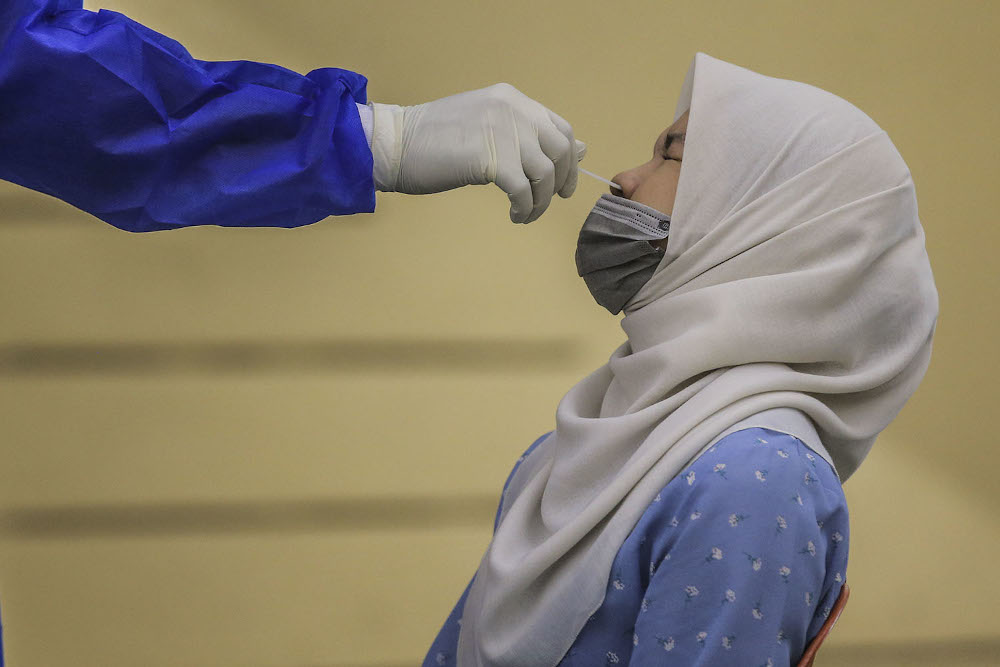JUNE 23 — The voice on pressurising the Ministry of Health (MOH) to endorse Ivermectin as a routine drug for prophylaxis and treatment for Covid-19 is getting stronger. There are also polls to collect signatures from the public on this aspect. I feel something is very wrong when we have lay people pushing for it. The practice of Medicine should be evidence based.
Evidence based medicine (EBM) is conscious, specific, reasonable use of modern, best evidences in making decisions about treatment of patients. Doctor chooses the best possible solution for his patients by the use of the best possible evidence, to provide the optimum health care in every aspect. It is also used to avoid major mistakes in the course of treatment, by providing better quality health care to the patients. Ultimately, to save the lives of patients.
MOH is right in not giving in to pressure when there is inadequate evidence in endorsing Ivermectin in the prophylaxis and treatment of Covid-19.
Ivermectin is a broad-spectrum antiparasitic agent approved by the Food and Drug Administration (FDA) of the USA proved to be safe at the conventional dose of ≤200 µg/kg, although severe adverse effects ranging from ataxia to seizures were occasionally reported. Due to its in vitro antiviral activity against a broad range of viruses, it has been used off-label for the treatment of some viral diseases.
However, regulatory bodies including the US FDA and the European EMA, as well as MOH concluded that there is insufficient evidence to support the use of Ivermectin as treatment of Covid-19. The WHO also issued guidelines against the routine use of Ivermectin in the treatment of Covid-19 except in clinical trial settings.
What is the basis of these regulatory bodies coming to this conclusion when there are many groups both globally and locally pushing for it?

Most of the justifications in proposing Ivermectin as prophylaxis and treatment for Covid-19 presented were from randomised controlled trials (RCTs) or systematic reviews of low quality. The results were taken at face values without dwelling into the methodological issues.
Among the RCTs, there are considerable differences in the population receiving Ivermectin, who were family contacts of confirmed Covid-19 cases as a prophylactic measure, mild to moderate infected or severe hospitalised patients using Ivermectin for treatment. Applied doses and outcomes of interest were also highly variable. Additionally, patients in the control groups received different kinds of comparators ranging from placebo or no intervention to standard care etc. The sample sizes of these RCTs were also small. Most of the RCTs were not registered with the Trial Registration Platform and were in the form of preprints, not peer reviewed nor published in journals. Registering clinical trials before they begin and making results peer reviewed overcome publication and selective outcome reporting biases.
The highest level of evidence comes from systematic review with meta-analysis from RCTs, however the quality of evidence generated depends greatly on the quality of the included RCTs.
Therefore, more RCTs which are well planned and peer reviewed, without conflict of interest, ethically approved are required. If the results are proven to be positive, Ivermectin may be endorsed as a routine drug for the prophylaxis and treatment of Covid-19 in the future.
This decision should not be pushed by the public. Polls for getting this endorsed should not be encouraged as medicine should be evidence based and NOT by popular vote.
* Prepared by Professor Dr Moy Foong Ming, professor in Epidemiology. Centre of Epidemiology and Evidence Based Practice, Department of Social & Preventive Medicine, Faculty of Medicine, University of Malaya.
** This is the personal opinion of the writer or organisation and does not necessarily represent the views of Malay Mail.





















